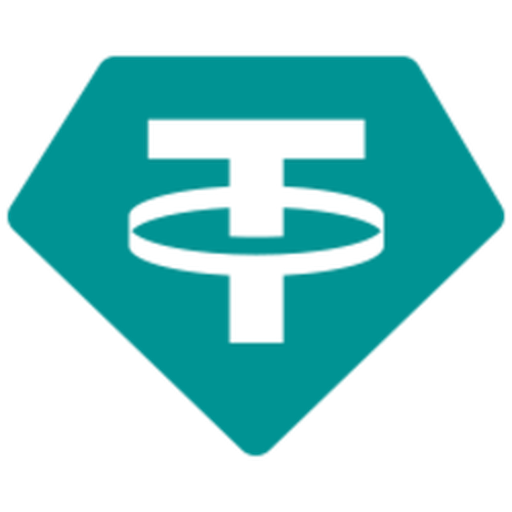Tether vs Taiko – Price, Market Cap & Performance Compared
Which coin performs better – Tether or Taiko?
We compare the current price (1 $ vs 0.70472 $), market cap (173 087 463 220 vs 72 695 911) and all-time high (1.32 vs 3.8).
Find out which one stands out right now!
Tether is currently trading at 1 $, while Taiko stands at 0.70472 $. These cryptocurrencies differ not only in price but also in market presence.
The market cap of Tether is around 173 087 463 220, and Taiko has about 72 695 911. Their respective all-time highs are 1.32 for Tether and 3.8 for Taiko.
Daily trading volume and the 24h price change (-0.00189 % vs 30.29026 %) also offer key insights.
Compare all metrics now and see which coin fits your investment strategy best!
Tether
Tether is a widely-used stablecoin in the cryptocurrency market, designed to maintain a value equivalent to a traditional currency like the US dollar. It provides traders and investors with a stable asset to navigate the volatile crypto landscape, offering a flexible means to move funds quickly between exchanges. Despite its popularity, Tether has faced scrutiny regarding its reserve holdings and transparency, sparking ongoing debates within the financial community.
more informationTaiko
Taiko is an innovative Layer 2 scaling solution that aims to enhance Ethereum's transaction throughput while maintaining a high level of decentralization. By leveraging zk-rollup technology, Taiko seeks to create a seamless user experience with lower fees and faster confirmations, making it an attractive option for developers and users alike. As the ecosystem grows, Taiko has the potential to play a significant role in shaping the future of decentralized applications on Ethereum.
more information

|

|
|
|
|
General Information |
|
|---|---|
|
Title
Tether
|
Title
Taiko
|
|
Symbol
usdt
|
Symbol
taiko
|
|
Whitepaper
|
Whitepaper
-
|
|
Website
|
Website
-
|
|
Community
-
|
Community
-
|
|
Last Updated
2025-09-24 23:29
|
Last Updated
2025-04-12 03:58
|
Price Data |
|
|---|---|
|
Current Price $
1 $
|
Current Price $
0.70472 $
|
|
High 24h
1 $
|
High 24h
0.80304 $
|
|
Low 24h
1 $
|
Low 24h
0.54088 $
|
|
Price Change 24h
-0.00002 $
|
Price Change 24h
0.16384 $
|
|
Price Change % 24h
-0.00189 %
|
Price Change % 24h
30.29026 %
|
Market Data |
|
|---|---|
|
Market Cap
173 087 463 220
|
Market Cap
72 695 911
|
|
Total Volume
95 616 120 249
|
Total Volume
43 820 775
|
|
Market Cap Change 24h
288 328 065
|
Market Cap Change 24h
16 978 376
|
|
Market Cap Change % 24h
0.16686 %
|
Market Cap Change % 24h
30.47223 %
|
|
Return on Investment (ROI)
-
|
Return on Investment (ROI)
-
|
Supply and Availability |
|
|---|---|
|
Circulating Supply
173 039 417 063
|
Circulating Supply
103 007 837
|
|
Total Supply
173 039 417 063
|
Total Supply
1 000 000 000
|
|
Max Supply
-
|
Max Supply
1 000 000 000
|
Historical Data |
|
|---|---|
|
All Time High (ATH)
1.32
|
All Time High (ATH)
3.8
|
|
ATH Change %
-24.39867 %
|
ATH Change %
-81.29149 %
|
|
ATH Date
2018-07-24 00:00
|
ATH Date
2024-06-05 13:01
|
|
All Time Low (ATL)
0.57252
|
All Time Low (ATL)
0.48919
|
|
ATL Change %
74.71457 %
|
ATL Change %
45.45478 %
|
|
ATL Date
2015-03-02 00:00
|
ATL Date
2025-04-07 08:15
|
Tether
Understanding Tether: A Stablecoin Powerhouse
Tether (USDT) is a leading name in the world of stablecoins, a class of cryptocurrency designed to facilitate transactions by maintaining a stable value. Unlike volatile cryptocurrencies like Bitcoin or Ethereum, stablecoins like Tether aim to provide users with the stability of fiat currency, while still leveraging the benefits of blockchain technology.
The Mechanism Behind Tether's Stability
Tether achieves its stability by pegging its value to traditional fiat currencies, primarily the U.S. Dollar. Each Tether token is reportedly backed by an equivalent amount of fiat currency held in reserve. This 1:1 backing mechanism is key to maintaining the coin's stable value, as reflected in its market price which typically hovers around 1 USD.
Historical Development and Milestones
Tether's inception dates back to 2014, and since then, it has played a pivotal role in demonstrating the practical use case of stablecoins within the crypto ecosystem. Its journey has seen significant milestones, including reaching its all-time high of $1.32 in July 2018, and experiencing its low at $0.572521 in March 2015. These deviations, while noteworthy, are rare occurrences in Tether's overall history, underscoring its primary objective of price stability.
Advantages of Using Tether
The primary advantage of Tether is its stability, making it a safe harbor for investors during times of high volatility in the broader cryptocurrency market. By offering price predictability, it facilitates more efficient trading, lending, and arbitrage, making it an indispensable tool for crypto exchanges and users alike. Moreover, Tether's utility is further enhanced by its widespread acceptance and high liquidity.
Challenges and Controversies
Despite its widespread use, Tether has faced scrutiny regarding its claims of full fiat backing. Critics have raised concerns about transparency, regulatory challenges, and the adequacy of its audited reserves. These issues have occasionally prompted regulatory attention and calls for greater transparency and accountability from Tether’s management.
Future Outlook for Tether
The future of Tether rests heavily on its ability to maintain trust and transparency with users and regulators alike. As the crypto market matures, Tether is expected to continue playing a significant role, particularly if it can navigate the evolving regulatory landscape successfully. Its position as a stablecoin market leader suggests that it will remain a cornerstone in crypto trading, offering a reliable alternative to more volatile assets.
In conclusion, Tether stands out as a critical tool within the cryptocurrency space, providing much-needed stability for traders and businesses. Its ongoing relevance will depend on its adaptability to regulatory demands and its continued assurance of transparency and full reserve backing to its user base.
Taiko
Introduction to Taiko: The Future of Blockchain Scaling
Taiko is an innovative Layer 2 scaling solution for Ethereum that aims to enhance the blockchain's scalability and efficiency. By utilizing ZK-rollups, Taiko offers a way to process transactions off-chain while ensuring the same level of security as the Ethereum mainnet. This technology is becoming increasingly relevant as the demand for decentralized applications (dApps) and transactions continues to grow.
Historical Performance of Taiko
Since its inception, Taiko has seen significant fluctuations in its value, reflecting broader market trends and the challenges faced by many cryptocurrencies. The coin reached its all-time high (ATH) of $3.8 on June 5, 2024. However, it subsequently experienced a correction, currently trading at approximately $1.42. This represents a decline of over 62% from its ATH, which is not uncommon in the volatile cryptocurrency market.
Taiko also reached an all-time low (ATL) of $1.26 on September 6, 2024. The subsequent rebound demonstrates the resilience of the project and its potential for recovery in a market that is known for its unpredictability.
Advantages of Taiko
Taiko has several advantages that make it an appealing option for developers and investors alike:
- Scalability: As a Layer 2 solution, Taiko can process a higher volume of transactions without congesting the Ethereum network.
- Security: By utilizing Ethereum's underlying architecture and incorporating ZK-rollups, Taiko ensures transactions remain secure while providing enhanced efficiency.
- Developer-Friendly: Taiko aims to create an ecosystem that facilitates the development of decentralized applications, making it easier for developers to launch their projects.
- Active Community: The Taiko community is engaged and actively contributes to the project's development through various platforms, fostering collaboration and innovation.
Disadvantages of Taiko
Despite its potential, Taiko faces some challenges that may hinder its growth:
- Market Volatility: Like all cryptocurrencies, Taiko is susceptible to market fluctuations, making it a risky investment.
- Competition: The Layer 2 scaling solutions sector is competitive, with projects like Optimism and Arbitrum already established, making it difficult for newcomers to gain traction.
- Adoption Rates: The success of Taiko largely depends on the adoption of its technology by developers and businesses, which is still an evolving process.
Future Outlook for Taiko
The future of Taiko looks promising, particularly as the demand for scalable blockchain solutions continues to grow. The Ethereum network is constantly evolving, and with upgrades like Ethereum 2.0, the reliance on Layer 2 solutions will increase. If Taiko manages to secure partnerships with major projects and increases its user base, it could position itself as a leading solution in the Layer 2 space.
Investors should keep an eye on Taiko's developments and community engagement. Understanding the broader market trends and Taiko's unique value proposition will be crucial when considering an investment in this cryptocurrency.
Conclusion
In summary, Taiko represents an exciting opportunity within the blockchain landscape, but it comes with its share of risks. Its innovative approach to scalability, combined with a supportive community, provides a solid foundation for future growth. However, potential investors should be wary of its volatility and the competitive landscape it operates within. With careful consideration and research, Taiko could be a worthwhile addition to a diversified crypto portfolio.

